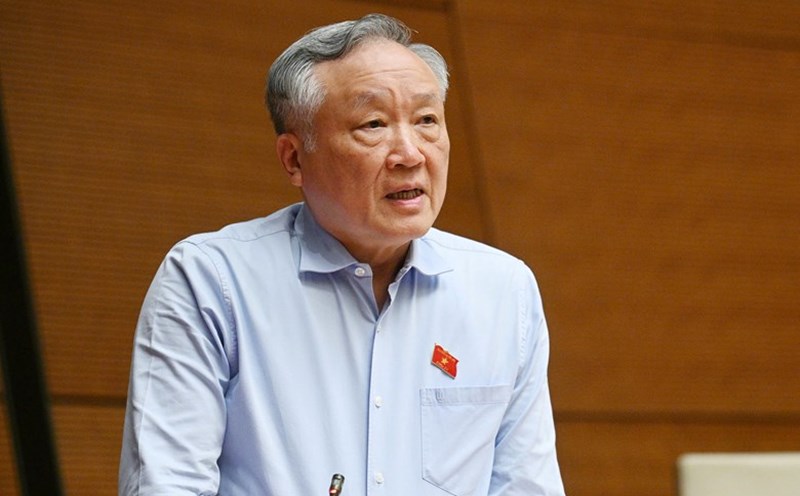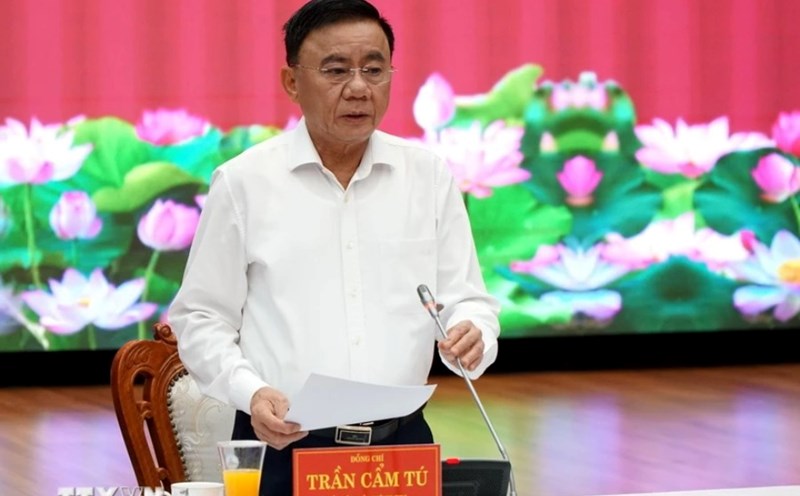On the afternoon of June 12, the National Assembly discussed in the hall the draft Resolution of the National Assembly on the International Financial Center in Vietnam.
Speaking at the end of the discussion session, Minister of Finance Nguyen Van Thang stated that the policy mechanisms were built after research, learning international experience and consulting with financial institutions, investors, and domestic and foreign experts.
Many proposed policies are breakthrough compared to current law, especially in the fields of tax, land, infrastructure, human resources and insurance, which are superior to other international financial centers.
There are many other policy mechanisms that are gradually approaching international practices such as the management model, language use, entry and exit, accounting, labor, sandbox, fintech, public-private partnership.
With sensitive policies with high system risks such as foreign exchange policies and dispute resolution, the minister said that they will be implemented according to a controlled roadmap, avoiding impact on macro stability and the national financial system.
Regarding risks, the Minister of Finance said that there are 2 main groups of risks that need to be controlled.
The first is foreign exchange risks. Accordingly, the International Financial Center may increase pressure on Vietnam's foreign currency and foreign debt, and at the same time, there may be a phenomenon of hot capital withdrawal, affecting exchange rates and the banking system.
Therefore, the Government will develop regulations on declaration, reporting, and capital control through specialized accounts, limiting short-term capital mobilization and encouraging medium and long-term capital mobilization.
Second is the risk from specialized exchanges such as carbon credit exchanges, precious metals, art exchanges, etc. "These exchanges can be exploited to legalize illegal cash flow through the purchase and sale of the above products, the risk of speculation inflating prices, creating asset bubbles," said Mr. Thang.
Therefore, it is necessary to build a complete legal framework, strict, transparent, systematic monitoring institutions, and comply with international standards.
According to the minister, some financial products and exchanges will be proactively implemented by enterprises according to market mechanisms, while the role of the State is to promulgate institutions, supervise and ensure system safety.
Having many types of products and many exchanges is a characteristic of an international financial center like a large market, where the more goods and services are sold, the more they attract transactions and investors, said the minister.
Regarding the location of the center, the minister emphasized that according to the conclusion of the Politburo, 2 financial centers will be established. In which, Ho Chi Minh City plays the role of international financial center, while Da Nang is the regional financial center.
However, the Government believes that such a strict division could lead to unfair competition between the two localities, affecting overall efficiency.
Therefore, the Government has proposed and received the Politburo's approval in principle, to establish an international financial center, but to deploy it at 2 locations, with clearly assigned functions and roles, promoting the strengths of each place.
The Minister emphasized that there is no need to worry too much about placing a center in the two cities.











